Latest News
Catholics Mobilize for Immigration Reform
Posted by on September 11, 2013 at 12:48 PM EDTFixing our immigration system will strengthen the U.S. economy, create jobs for American workers and cut the deficit according to an August White House report describing the economic benefits of immigration reform that includes an earned path to citizenship. As the push for immigration reform charges into the fall, a diverse coalition of religious leaders is also calling attention to the moral aspects of this debate. Their efforts remind us that the immigration system is designed to do more than strengthen our economy and national security: it also serves to protect those who aspire to live, work and thrive in this great nation.
Catholics leaders and organizations are among those playing a leading role in making this case.
Learn more about ImmigrationRussian Civil Society Leaders Inspire
Posted by on September 11, 2013 at 10:50 AM EDTDespite a packed G-20 schedule filled with meetings on economic issues and the situation in Syria, President Obama also took the time while in St. Petersburg to meet with representatives of Russia's civil society. He holds such meetings in nearly every country he visits, because, as he told these leaders, he believes that "a country's strength ultimately comes from its people and that as important as government is -- and laws -- what makes a country democratic and effective in delivering prosperity and security and hope to people is when they've got an active, thriving civil society." These engagements are an opportunity not only to hear candid views about the country in which these representatives live, but also about the United States.
The meeting in St. Petersburg was no exception. The President, National Security Advisor Susan Rice, and I met with a fascinating group of activists that included Boris Pustyntsev, Ivan Pavlov, Yevgeniya Chirikova, Yana Yakoleva, Dmitry Makarov, Igor Kochetkov, Yelena Milashina, Olga Lenkova, and Pavel Chikov. The group represented a broad cross-section of Russian NGOs and activists who work on issues such as human rights, the environment, media freedom, rights of business entrepreneurs, LGBT rights, and fighting corruption, racism, and discrimination.
Our colleagues gave President Obama a strong sense of the challenges facing civil society leaders in Russia today, especially new laws that place restrictions on foreign-funded NGOs and discriminate against the LGBT community. Like others around the world, the President has been following with particular concern the increased climate of intolerance and violence that have accompanied the new law affecting the LGBT community, and he had the chance to hear from two courageous LGBT activists from St. Petersburg who described the challenging environment for their work. Participants urged him to keep human rights, including LGBT rights, on his agenda; to correct mischaracterizations of American policy and laws (especially the false analogy between Russia's "foreign agent" law and U.S. legislation on lobbying); to empower multilateral organizations to pressure the Russian government to meet its international commitments; and to stand up against discrimination and for freedom of assembly and expression.
The President learned not only about the situation in Russia but also how the Administration's policies on the environment, whistle-blower protections, and Syria affect the work of civil society activists in Russia. President Obama acknowledged the complexities of balancing national security and individual rights on a variety of issues, but he also expressed faith in the power of American democratic institutions, including a free press, to provide the proper context for resolving specific issues and ultimately to make the American system more democratic. President Obama gave particular attention to the role of civil society in making governments more representative and accountable. He noted his own background as a community organizer, highlighting the significant and important role civil society plays in bettering the lives of ordinary people.
President Obama carefully took notes and responded to all of the questions raised during the meeting. He was clearly energized intellectually and inspired. A meeting planned for forty minutes turned into almost an hour-and-a-half interactive discussion. The President pledged to consider every concrete proposal and later tasked me to follow up on some practical ideas proposed by our roundtable participants.
In the car ride to the Air Force One after the event, the President commented on the articulate, passionate, and practical presentations these leaders had made, and we had a very wide-ranging discussion about civil society in Russia, civil society and human rights around the world, and democracy more generally. After two long days at the G-20, I was struck by how invigorated the President seemed after the discussion.
I thank our Russian participants for such a stimulating session and, like the President, applaud their courageous and important efforts in Russia.
Michael McFaul is Ambassador of the United States of America to the Russian Federation
Learn more about Civil RightsAn Update on the White House Rural Council
Posted by on September 10, 2013 at 5:08 PM EDTEd. Note: This blog post was originally published by the Department of Agriculture.
Since the White House Rural Council was formed in 2009, our members from across the Federal government have taken a renewed look at many critical programs and services that impact rural residents, with an overarching goal to ensure that Federal agencies are collaborating to achieve the greatest possible benefit in rural America.
Today, I hosted a meeting of the White House Rural Council where we continued our focus on shared efforts to better serve rural America – from conservation, to veterans’ services, to rural development, to support for American agriculture and more.
Today’s meeting included a special focus on expanding rural access to health care. Rural Americans face unique barriers with regard to health care services, and new investments in medical facilities, expanded information technology and stronger veterans’ health care services can help meet these challenges.
While we look forward to a number of announcements in the weeks and months to come that are intended to strengthen rural health care capacity, the Department of Health and Human Services made two key announcements today in partnership with the White House Rural Council.
First, HHS announced that tomorrow, $4 million will be awarded through its Rural Health Information Technology Program to recruit, educate, train and retain health IT specialists in rural America. These awards will allow 15 organizations across the nation to train more healthcare workers in the specialized technology needed to better manage records and deliver remote services in rural America. As these services are expanded, more folks in rural areas will see streamlined management of health care records. Service will be more efficient. And it will be easier for specialists to help provide remote consultations through innovative new technology.
Learn more about RuralWatch Live on Thursday: The impact of “Obamacare” on the LGBT community
Posted by on September 10, 2013 at 9:32 AM EDTDespite the tremendous progress we’ve made in achieving equality for the lesbian, gay, bisexual, and transgender (LGBT) community, many LGBT individuals still face limited access to health care and insurance, and are less likely to get the preventive care they need to stay healthy.
Thankfully, the Affordable Care Act, or Obamacare as it’s also known, directly addresses some of these needs, by:
- Protecting the right to access quality, affordable health insurance. Starting in 2014, the health care law prevents insurers from denying us coverage or charging us a higher premium because of a pre-existing condition or because we are LGBT.
- Removing lifetime dollar limits on coverage. That means that people with chronic diseases, like HIV/AIDS, cancer and mental health concerns, can get the care we need. And starting in 2014, all annual limits will be illegal, too.
- Promoting wellness by requiring insurers to cover preventive care at no additional cost. LGBT adults and teens can get screened by a health professional for HIV and depression without paying co-pays or deductibles. Other preventive services, like cervical cancer screening for sexually active women, obesity counseling for people at risk, and well-woman visits are also covered at no extra cost.
- Helping more LGBT Americans find affordable health insurance. Starting October 1, 2013, all Americans without insurance and those looking for better options will have a new place to shop for plans, the Health Insurance Marketplace, and may qualify for lower costs on monthly premiums.
The Affordable Care Act could truly transform the health and well-being of the LGBT community for generations to come, and the upcoming open enrollment period in the Health Insurance Marketplace, – from October 2013 to March 2014 – provides an important opportunity to get folks enrolled.
That’s why the White House Office of Public Engagement and the U.S. Department of Health and Human Services are teaming up to host a Briefing on Obamacare and the LGBT Community, this Thursday, September 12th. The event will include remarks by Senior Advisor Valerie Jarrett and HHS Secretary Kathleen Sebelius, as well as an exciting presentation of important new research on how LGBT communities perceive and access health care, and suggested messaging strategies for reaching key sub-communities.
And you can watch it live from home or work! Visit http://obamawhitehouse.archives.gov/live this Thursday, September 12th, starting at 1:15 p.m. EDT to tune in.
Gautam Raghavan is an Advisor in the White House Office of Public Engagement. Matthew Heinz, MD, is Director of Provider Outreach and Director of LGBT Outreach at the U.S. Department of Health and Human Services.
Learn more about Health CareActive and Audacious Public Health Work
Posted by on September 9, 2013 at 2:40 PM EDT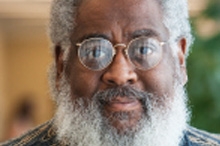
Ira Combs is being honored as a Champion of Change for helping Americans live healthier lives, reduce disease and contribute to lowering health care costs by focusing communities on public health and prevention.
It seems that everywhere I go, when I tell people that I work in Omaha, Nebraska, their initial reaction is: “I didn’t know there were any black people in Nebraska.” This response is indicative of why it feels so good to be selected as a Public Health Champion for Change: we need people who believe in active and audacious community and public health work wherever it is needed.
I have been a community nurse for more than two decades and currently serve as Community Liaison Nurse Coordinator at the University of Nebraska Medical Center.
I also am the founding director of North Omaha Area Health (NOAH), an agency that addresses the needs of the underserved in North Omaha. With a handful of dedicated community volunteers and grassroots programs, we have worked hard to meet the public health needs of our community.
My work has an emphasis on inspiring young African-Americans to become involved in public health. This includes the creation of a youth mentoring program called “CPR-N-Da-Hood,” which teaches young people CPR, then allows them to teach others through a peer education component I also created Youth Expressions of Health (YEOH), a program that has reached hundreds of young people in the past 12 years. 10 years ago, we also started a Youth Summer Internship Employment Program that has assisted more than 45 minority and underserved young people prepare for and start college with a focus on entering a health care field.
I am also the founding publisher and editor of the NOAH health newsletter, started 15 years ago, which provides health information and educational services to the underserved in Omaha. NOAH sponsors and maintains websites and social media networks that provide information about healthy living and health screening clinics. We also created a local show revolving around a character called Dr. Jesse and his friend, Prevention Man -- both aimed at teaching healthy practices and tips to children and teens.
The quote from the Bible, “For everyone to whom much is given, from them much will be required” is how I live my life and apply my skill set, helping those who need help the most. In that same vein I tell youth and families alike, when you have information, a skill, a talent it’s incumbent upon you to share it with the community because many times, unless we help those in our community the help may never come.
Ira Combs, serves as Community Liaison Nurse Coordinator at the University of Nebraska Medical Center and is the founding director of North Omaha Area Health (NOAH), an agency that addresses the needs of the underserved in Omaha, Nebraska.
Learn more about Health CareHelping My Community Be Healthy
Posted by on September 9, 2013 at 2:34 PM EDT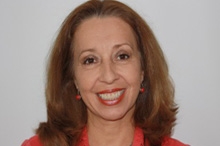
Myriam Escobar is being honored as a Champion of Change for helping Americans live healthier lives, reduce disease and contribute to lowering health care costs by focusing communities on public health and prevention.
I am a Community Outreach Worker at Moffitt Cancer Center, the only National Cancer Institute-designated cancer center based in Florida.
I enjoy being in the community and hearing firsthand the dreams, hopes and needs of the people I work with. I enjoy sharing with others -- and learning from them -- the simple things in life. When helping someone, it is not necessary to make large gestures. It’s the small details, like a friendly hand in the right moment that can change someone’s life forever. We just need to be aware by taking advantage of the resources and tools that life offers us, and to utilize them at the appropriate moment. For this reason, I love my job. Every day is an opportunity to help someone.
I was born in Colombia and immigrated to this grand country with my husband and son where we learned that dreams can become a reality with effort, dedication, and hard work. I can say that we are the perfect example of what makes this a great country; the multicultural contributions each one of us brings to this country adds to its success.
In 2008 a very painful event occurred in our family. My sister-in-law lost her battle against breast cancer at only 50 years old, leaving two teenage sons. That was a pivotal moment in my life. For reasons that only the Creator can explain, almost one month later I started working at Moffitt Cancer Center driving the mobile mammography bus that visited community clinics. Two years later, our Program Manager bestowed upon me and my co-worker a program we call, Yo me cuido, I Take Care of Myself to address the needs of the Latino community.
At that moment, I understood that this was the precise tool to change many lives, everyday women, the majority of them immigrants, with many dreams to accomplish. My job consists of motivating women who attend our workshop to get their mammograms, demonstrate the importance of breast self-exam awareness and follow them to make sure they have their yearly mammograms. We visit women in their churches, work sites, neighborhoods, support groups, apartment complexes, beauty salons, schools, and libraries. Where there is a group of women, our program is there.
Yo me cuido teaches Hispanic women how to take care of their health through early detection screenings and healthy lifestyles, focusing on the prevention of breast cancer.
We emphasize the importance that they have within our society, showing them how important it is that their healthy behaviors will be seen by their children and their entire families.
I think it is important that community work transcends boundaries and working with women is the perfect opportunity. I am convinced that as women we can change the world from the heart of our own homes.
Myriam Escobar is a Community Outreach Worker at Moffitt Cancer Center, a National Cancer Institute-designated cancer center, where she runs a program in the Tampa Bay area in Florida, called Yo me cuido (I take care of myself). The program teaches Hispanic women to take care of themselves through early detection and by living a healthy lifestyle with an emphasis on breast cancer prevention.
.
Learn more about Health CareSupporting the Health of the Public We Serve
Posted by on September 9, 2013 at 2:23 PM EDT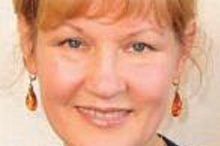
Natalie Pawlenko is being honored as a Champion of Change for helping Americans live healthier lives, reduce disease and contribute to lowering health care costs by focusing communities on public health and prevention.
Sometime in my early teens, I had an epiphany: all our actions – even those we think to be most private - contribute to the life around us. And that we have a choice to either contribute positively to an upward spiral of human life, or to its antithesis. I chose the former.
The past thirty years of my life have been an ongoing search for ways in which to continuously contribute to the community. As a child of immigrants fleeing from WW II in Ukraine, there was frequently a sense of appreciation for the privilege of having been born in the United States, and a desire to “give back”. However, not until the Chernobyl nuclear disaster of 1986 did I focus on the health of the public, here and elsewhere in the world.
Public health is our invisible first line of defense. It is everywhere: from childhood immunizations, to clean drinking water, to food inspections and clean air. It is complex, like newborn screening and disease outbreak monitoring. It is also as simple as you and me washing our hands frequently and sneezing into our shirt-sleeves. It is pervasive, and as history has shown, it can be profoundly transformative.
After working in Canada for many years and witnessing the critical role played by public health in the containment of the SARS outbreak there, I returned to New Jersey and joined the New Jersey Department of Health, Office of Local Public Health. I have an abiding interest in public health informatics and have spearheaded the reform of the public health reporting system in New Jersey.
And over the course of the past nine years, I have gotten to know the many men and women, public health professionals whose daily work in their local communities keep our state healthy and safe. Their commitment inspires me greatly and in my various roles here at the State Health Department, I have endeavored to support them in doing their vital work more effectively and efficiently and with less unnecessary burden.
Whether it is championing quality improvement training or performance evaluation audits, process management or leadership coaching, accreditation preparation or informatics reform, my team and I continuously focus on being ‘ruthlessly practical’. And in the fast paced environment that is the East Coast, we ground our work in collaboration, mutual respect and an awareness that everything we do contributes to the health of the public we serve.
With funding from the Affordable Care Act’s Prevention and Public Health Fund, the state of New Jersey has reduced the lag time between testing and reporting influenza results to the Centers for Disease Control and Prevention from 2-to-3 weeks down to 2-to-3 days. With more timely information, local health departments are better prepared to address emerging health issues and prevent future issues.
Natalie Pawlenko is the Director of the Office of Local Public Health for the New Jersey Department of Health where she is leading a statewide effort to streamline and coordinate public health data collection and analysis to improve public health prevention and response.
Learn more about Health CarePublic Health in Action
Posted by on September 9, 2013 at 1:44 PM EDT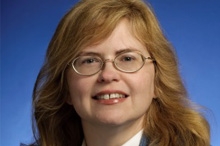
Marion Kainer is being honored as a Champion of Change for helping Americans live healthier lives, reduce disease and contribute to lowering health care costs by focusing communities on public health and prevention.
I am an infectious diseases physician and epidemiologist and work as director of the Healthcare Associated Infections (HAI) and Antimicrobial Resistance Program at the Tennessee Department of Health. I have an awesome team and I love my job: making health care safer in Tennessee and nationwide.
Earlier in my career in Australia, a terrible outbreak of methicillin-resistant Staphylococcus aureus (MRSA) infections among surgical patients changed my career forever. Never again did I want to feel as powerless in an outbreak as I did during that experience. I was no longer satisfied with attempting to treat infections; I wanted to prevent them.
Last year, a fungal meningitis outbreak across the country devastated patients, their loved ones, and healthcare providers. Tennessee was right at the center and dealing with it required every tool in my toolbox as a clinician and epidemiologist.
More than 13,500 patients were injected with contaminated steroid injections from a compounding pharmacy. Nearly 750 patients developed meningitis and/or infections around the spine and 63 people have died. Many still struggle with complications. As horrendous as this outbreak has been, it could have been far worse without investments from the Affordable Care Act’s Prevention and Public Health Fund. The Affordable Care Act is helping public health departments prevent and fight infectious diseases by investing in tools like enhanced public health workforce training and improved information technology.
The six members of my HAI team, funded through the Affordable Care Act’s Prevention and Public Health Fund Epidemiology and Laboratory Capacity grants, not only quickly determined the cause of the outbreak, they also identified patients not yet ill but at the highest risk of getting sick. Lives were saved not only by halting the contaminated injections, but also by tracking down every affected patient and getting effective treatment to the sick without delay.
In Tennessee, 153 persons developed infections; 15 have died. Had we not acted as quickly as we did, and the use of contaminated medication gone unchecked by public health, we estimate that 368 additional Tennesseans would have been injected. An additional 99 would have developed serious infections and up to 69 more people may have died. Our success came from a massive team effort that required close collaboration among clinicians, clinics, hospitals, local and state health departments and federal agencies, as well as vital funding from the Prevention and Public Health Fund. This collaboration must continue in order to prevent such a tragedy from occurring again.
Dr. Kainer is an infectious diseases physician and epidemiologist. She is the director of the healthcare associated infections and antimicrobial resistance program at the Tennessee Department of Health and helped identify the source of the 2012 fungal infection outbreak.
Learn more about Health Care
- &lsaquo previous
- …
- 58
- 59
- 60
- 61
- 62
- 63
- 64
- 65
- 66
- …
- next &rsaquo

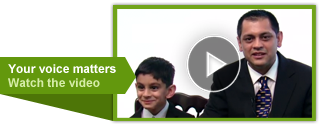

Twitter